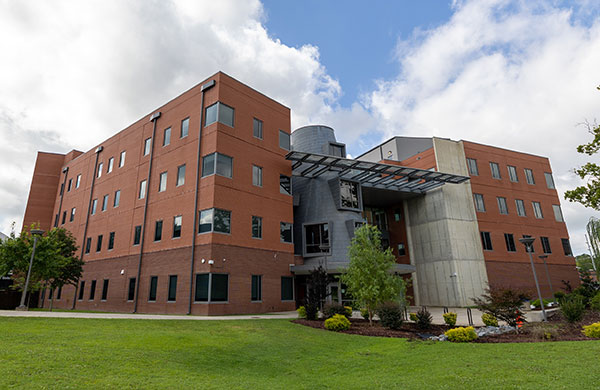Courtesy of Fayetteville State University
Two Fayetteville State University faculty members in the School of Social Work were awarded a $55,000 grant to develop simulation-based skills lab and four-week curriculum enhancing the awareness and education of social work students serving communities impacted by the HIV/AIDS epidemic.
Associate Professor Erica Campbell, Ph.D., and Assistant Professor Michelle Bates, Ph.D., received the grant from the AIDS United Southern Impact Fund in December 2023. The innovative virtual simulation-based skills lab and four-week curriculum aims to increase HIV/AIDS health literacy among social work students by providing accessible and accurate information relating to HIV/AIDS disparities, prevention, intervention, treatment, and services.
“Improving our students’ HIV/AIDS literacy is critical to the preparation and development of social work professionals who are confident, competent and demonstrate the ability to assess and provide services to individuals and communities impacted by HIV/AIDS,” Campbell said.
People living in the southern United States make up 34% of people living with HIV/AIDS, and North Carolina is one of the top 15 states with the highest number of new HIV diagnoses. Nearly 37,000 people lived with HIV/AIDS in North Carolina in 2022, according to the state’s Department of Human and Health Services. African Americans make up 22.1% of the population and 57.1% of new HIV infections among 15- to 34-year-olds.
The project is essential to addressing key social and racial issues that impact the HIV/AIDS epidemic in Cumberland County and wider rural communities in NC. Several barriers are known to impact testing among African Americans, including HIV-related stigma, reduced access to healthcare, low HIV knowledge, and low perception of risk. The curriculum will provide students with a better understanding of the intersectionality factors that contribute to disparities in HIV/AIDS prevalence, access to services, and health outcomes.
“It is our hope that those living with HIV/AIDS in our community will have greater access to competent care because of our ability to train and inform future social workers of the unique needs of this population,” Bates said.

